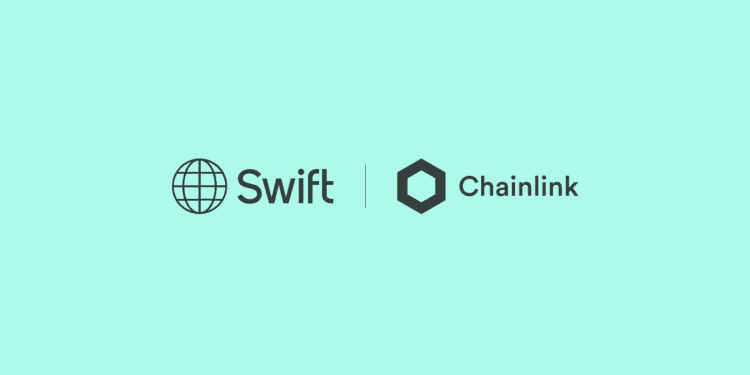- Swift, the international bank communication network, and Chainlink, a company specializing in decentralized services, successfully moved digital assets across various blockchains.
- The initiative previously drew attention with its plans to collaborate with renowned financial entities like BNP Paribas and Lloyds Banking Group for exploring blockchain capabilities.
- The successful operation adds credibility to Chainlink’s Cross-Chain Interoperability Protocol (CCIP) and sets the stage for melding traditional and digital finance in the future.
Two influential players in the financial technology sector, Swift and Chainlink, broke new ground by accomplishing a transfer of tokenized assets between multiple blockchains. Revealed last Thursday, this operation demonstrates a major leap forward in making digital finance more accessible and streamlined.
Earlier this season, both companies raised eyebrows by announcing an ambitious joint project. Partnering with financial industry leaders like BNP Paribas and Lloyds Banking Group, they aimed to dive into the untapped capabilities of blockchain technologies. Along with them, other financial mainstays like BNY Mellon and The Depository Trust & Clearing Corporation joined the initiative, highlighting its significance.
Tokenizing assets, or turning real-world assets into digital tokens, is capturing the imagination of finance experts worldwide. A recent report by the Hong Kong Monetary Authority elaborated on the potential advantages of this approach, including increased efficiency and enhanced transparency, especially in markets for bonds.
Tom Zschach, Swift’s leading innovation officer, stressed the necessity for a unified point of access for tokenization to flourish. Combining Swift’s robust global network with Chainlink’s state-of-the-art decentralized protocols will provide that much-needed central point. The collaboration effectively tackles a long-standing challenge, laying the groundwork for widespread adoption of asset tokenization.
The technological backbone of this groundbreaking move is Chainlink’s Cross-Chain Interoperability Protocol (CCIP), a system engineered for applications that require interactions with diverse blockchains. Launched in July, the CCIP proved its mettle by being at the core of this successful experiment. The accomplishment lends weight to the protocol’s efficacy and opens up avenues for future projects aiming to meld conventional and digital financial systems more seamlessly.
By linking traditional financial infrastructure with blockchain innovations, Swift and Chainlink are setting a course toward a more integrated and efficient future for the financial world. This not only validates the reliability of emerging blockchain technologies but also signals the readiness of traditional financial institutions to adapt and evolve.
SWIFT Explores Blockchain Potential
In a significant technological stride, SWIFT, known for securely managing global financial messaging, is investigating the possibilities of blockchain technology. Notably, this comes when the cooperative already facilitates a large number of daily transactions between banks, trade houses, and individuals using its robust network and unique BIC identification codes. Primarily funded through transaction fees, the organization has been instrumental in financial communications worldwide, largely due to its impenetrable security protocols.
While SWIFT has not branched out into becoming a cryptocurrency payment processor, it is keenly interested in the benefits that blockchain technology can offer. The organization recently conducted tests to enable frictionless transfers of digital assets known as tokens across multiple blockchain platforms. Working with financial firms and technology partners like Chainlink, the experiment aims to make SWIFT a central conduit for these asset transactions, solving the critical issue of asset compatibility between various blockchains.














